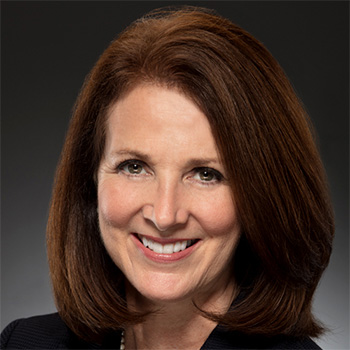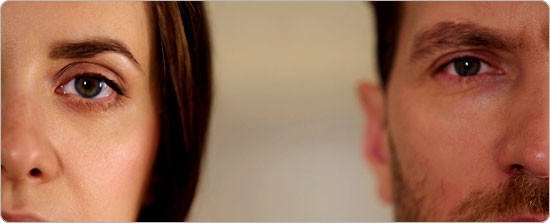Back to series



Open in prayer — that through this study God would guide your discussion and equip you to become more effective in defending and sharing your faith in Jesus Christ.
Lessons Learned from the Conversion of Atheists by Jana Harmon (50 min.).
Discuss the topic “Reaching the Resistant” using these starter discussion questions:
1. What people in your world appear to be resistant to the message of the gospel?
2. What reasons do they give for their lack of faith in Christianity?
3. What did you learn from Jana’s talk and article about intellectuals and others who may seem to be resistant to faith?
4. How can we reach the intellectuals and skeptics in our neighborhood with the gospel?
5. Discuss some approaches to loving and reaching out to those resistant to the gospel.
Read the conversational apologetics exercise assigned as homework in Session 4. Break into small groups to complete the exercise.
Determine practical steps to take this week to apply what you’ve discussed. Write them down.
Pray for one another and your non-Christian friends
Introduce the assignments for the next session and close in prayer.
Assignments to Complete before Session 6: Is Christianity Oppressive or Liberating for Women?
Memorize and meditate upon Galatians 3:28 (NIV):
There is neither Jew nor Gentile, neither slave nor free, nor is there male and female, for you are all one in Christ Jesus.
Read the article “True Freedom for Women” by Willette Wright (This article is included below.)
Read and reflect upon the following conversational apologetics practice exercise.
Conversational apologetics exercise: The airplane conversation — You get seated on an airplane and start reading a Christian book. The woman sitting next to you asks, “What are you reading?” You name the title and author, and the woman asks, “Is that a religious book?” You soon get into a discussion about faith. She learns that you are a Christian and says, “The Christian religion is too oppressive and chauvinistic for me. I like my freedom to live as a liberated woman.”
Make a list of questions you might ask to help her explain her position. Then make a list of ways that your faith in Jesus is liberating for you.
Pair up and role play this discussion with one person being the Christian and the other the non-Christian. After 10 minutes, reverse roles.
True Freedom for Women
by Willette O. Wright, Ed.D.
Founder and President of The Institute for Women
When was the last time you were sexually harassed, disrespected, or marginalized because you were a woman? Notice that I didn’t ask “if” you had been harassed, disrespected, or marginalized due to your gender, but rather assumed that you’ve experienced some inequity or oppression as a result of being female. It seems to be a universal problem for women.
The regard for and the equitable treatment of women is one of the pressing issues of our time. Undoubtedly women have made “strides” in the past century as their prominence in social, political, and professional leadership is well documented and often celebrated. Pew Research indicates that internationally the number of countries that have had a female leader continues to increase. According to the World Economic Forum, of 146 nations, 38 percent have had a female head of government or state for at least one year in the past half-century.1 These statistics and others provide impressive and notable evidence of the influence of women in society in general. However, there remains a consistent undercurrent on a global level in which women are exploited and objectified throughout societal levels.

A recent survey indicated that 81 percent of women in the United States had been the victim of some form of sexual harassment whether it was verbal or physical or a sexual assault.2 In the United Kingdom, women are five times more likely to experience sexual assault than men.3
In Japan, which has a culture significantly shaped by a Buddhist worldview, the ideal woman is described by the expression, “the woman should walk three steps behind her husband.” While some may argue that there are advantages to the traditional roles played by men and women in Japanese society, problems like an epidemic level of inappropriate touching of women on trains, the objectification of women in rampant pornography, and a lack of inequality in the workplace demonstrate the problem exists also in the Buddhist world.
In the Muslim world, the Qur’an makes it clear that women have less status and worth than men. A woman’s testimony in court is worth half of a man’s testimony (2:282). In an inheritance, the man receives twice as much as a woman (4:11). In practice, women in some Islamic countries are not allowed to drive or walk alone in public. While the restrictions on dress vary, in some Muslim countries, women are forced to cover up completely except for a mesh over their eyes, so they can barely see where they are going. At the same time, the men are free to drive, walk freely in public, and dress with relatively few restrictions.
In the Hindu world, the plight of women is not much better. The following passage from one of the Hindu holy books describes the role of women: “Her father protects (her) in childhood, her husband protects (her) in youth, and her sons protect (her) in old age; a woman is never fit for independence” (Manusmriti 9.3).
The Hindu woman’s primary role is to perform her duties to her husband and to bear children. In fact, one of the grounds for divorce is the inability to bear children. Women in Hindu countries such as India report rampant discrimination and harassment. In fact, of the G20 countries, India’s Hindu women were the most discriminated against when compared to women in other developed countries.4
In our secular Western world, government regulations and human resources policies providing protections for women have been tried as a way to remedy the situation of inequality for women. These approaches may have addressed the issues of inequity, sexual harassment, and the marginalization of women, but trends like the #MeToo movement make it clearer than ever that most women still experience various forms of oppression largely unknown to their male counterparts.
Given the times in which we live, and the attitudes toward women that mirror those of times past, one may ask, Does Christianity present relief from the oppressive and marginalizing effect of societal attitudes toward women? For the woman who is subject to the prevailing attitudes of the twenty-first century, is Christianity oppressive or liberating? What is a Christian perspective on the value and treatment of women?
If one were to answer these questions based on reports of scandals in the American church, one might argue that Christianity is just as bad as other worldviews in providing a solution. News reports of pastors being accused of sexually harassing parishioners and coworkers, or other forms of abuse, are disheartening.
At times the church has represented the misconception that women are inferior or subordinate to men. As well, there are Scripture references that depict the woman as the “weaker vessel” (1 Pet. 3:7); when these verses are taken out of context, one could get the impression that Christianity isn’t any better than other traditions in its treatment of women. But using the Bible to present women as weak or inferior to men in an effort to objectify or marginalize them is an incorrect view.

Is Christianity oppressive or liberating to women? I suggest that the best place to get an answer is from the original source and founder of Christianity—Jesus Christ.
As Christians, we understand that Christ (Jesus) is Christianity. He is the Author and Finisher of our faith; He is our Source. While defined as a religion, Christianity is a way of life that enables those who enter in to become Christlike. In this, we become Christians and are recipients of all that the kingdom of God offers. In his work Mere Christianity, C.S. Lewis wrote:
Now the whole offer which Christianity makes is this: that we can, if we let God have His way, come to share in the life of Christ. If we do, we shall then be sharing a life which was begotten, not made, which always has existed and always will exist. Christ is the Son of God. If we share in this kind of life we also shall be sons of God. We shall love the Father as He does and the Holy Ghost will arise in us. He came to this world and became a man in order to spread to other men the kind of life He has—by what I call “good infection.” Every Christian is to become a little Christ. The whole purpose of becoming a Christian is simply nothing else.5
An examination of who Jesus is and who we are as Christians gives us a clear and specific picture of the extent to which Christianity is liberating and not oppressive to women or any human being.
Liberation is the essential and overarching truth of Christianity. The Bible tells us in John 8:36 that through Jesus we are made free and are, therefore, free indeed. The Amplified Bible, Classic Edition of this verse says, “if the Son liberates you [makes you free men], then you are really and unquestionably free.” This liberation supersedes the pull and influence of the social and moral attitudes of the perilous times in which we live. This liberation is of divine origin and is immediate in its effect and unchanging in its duration.
True Christianity is reflected in who Jesus is. In this reflection is a life and lifestyle that are free from the bondage and oppression of sin. Christianity is most assuredly liberating to women, because Christ, who is the Source of Christianity, offers this liberty to everyone (male and female) who desires and receives the gift of salvation. Although the answer to whether Christianity is oppressive or liberating to women is evident in who Jesus is, the simplicity of the answer may be too obvious and thus less than believable for many. The significant presence of violence against women and the objectification of women in nearly every corner of society warrant a closer examination of Christianity as a source of hope and help.
Essential to an understanding of how women are presented and regarded in Christianity is a focus on the liberation that is inherent in the Source. Christ has made us free from the law of sin and death (Gal. 5:1). This liberation is without respect to gender and is not connected in any way to human nature or human logic. Liberation in Christ affords us the ability to live in and with all the promises of God. Accordingly, every woman through the liberating power of the gospel of Jesus Christ is free to live an abundant life now and eternal life after death. The social attitudes and skewed moral positions of the day, while evident, are not representative of or restricting to the liberty that is in Christ Jesus. There is no greater liberation than Jesus. He is the Source of Christianity and has purchased and secured a freedom that is without question, comparison, or end.
Christianity provides liberation that is without equal and undoubtedly necessary for any woman desiring to find relief from the inappropriate view of her role and significance found in many other worldviews.
Scripture provides three perspectives from Christianity that support this truth.
First, Christianity is liberating to women because the Word of God acknowledges women as equal in worth and significance to God’s plan and purpose. In the beginning, God created man and woman with a purpose that was presented to both of them. They were to fulfill the purpose together—each having specific characteristics that identified them as male and female but equal in worth and significance in the plan of God. Genesis 1:27–28 states that God created man (male and female) in His own image; they were created equal in worth and significance because they were created in the image of God.
They were also blessed, which means they were endowed with gifts and graces from God to fulfill His divine purpose. Genesis 1:28 presents their purpose: they were to be fruitful, multiply, replenish, and subdue the earth, having dominion or authority with stewardship over what God created.
Second, Christianity is liberating to women because the Word of God authenticates women as significant to Jesus’s work and ministry. The Gospels point to the significance of the work and ministry of women during Jesus’s earthly ministry (Luke 8:1–3). They were not hindered by any cultural norms or prevailing societal attitudes in their efforts to live as followers of Christ. The women who were healed and delivered through Jesus’s ministry thought it necessary to support the work of ministry physically and financially. Once they received salvation through Christ, they were free to participate in and be recipients of Jesus’s ministry. The benefit of this liberty was not only evident during Jesus’s earthly ministry; it was also evident in the establishment of the early church and continues as women minister in positions of leadership in the church today.

Finally, Christianity is liberating to women because the Word of God teaches us to appreciate the value of a woman. Her commitment to Christ allows her to overcome the social mores and opposition from those who would diminish her value. The Scriptures include several examples of women who, from a natural and/or societal perspective, were objectified, overlooked, ignored, abused, and treated in a manner that reflected devaluation and lack of respect for who they were as women. Jesus’s ministry and the liberty that is inherent in this dispensation of grace provide the ultimate indication of God’s care for and attitude of love toward women. He values His creation, woman. Examples include:
The woman with an issue of blood who pursued Jesus and pressed on despite the shame and fear of social rejection to be healed immediately by touching the hem of Jesus’s garment (Luke 8:43–48).
The woman at Bethany who was with Jesus before going to the cross did not consider the remarks from men who chided her about using a most precious oil to anoint Jesus’s body. While the men were concerned with money over mission, Jesus commended her efforts and memorialized them as an act that will be forever remembered in the preaching of the gospel (Mark 14:3–9).
The Gentile woman whose daughter was demon possessed crossed the racial barriers of the day by seeking Jesus’s help (Matt. 15:21–28). She did not consider racial differences or the taunts from His disciples who wanted to send her away. Jesus healed her daughter and spoke of her great faith.
These and many other women in Scripture were devalued by others, but through His example and the liberating power of His love, Jesus valued and appreciated them.
The Scriptures provide the answers and the liberty that only Christ Jesus can give. This freedom is available to every man or woman who will receive it. It is the liberty that affords women the ability to live and thrive amid attitudes and perceptions that attempt to alter and destroy the godly purpose for which they were created. In Christ, women are free to fulfill God’s divine plan and purpose for who they are. They are free to be disciples of Jesus Christ, daughters of the King of kings, and the “good” that God created in His own image, full of dignity and worth.
« INTRO 1 2 3 4 5 6 7 APPENDIX »

Notes:
1 Abigail Geigher and Lauren Kent, “Number of Women Leaders around the World Has Grown, but They’re Still a Small Group,” Pew Research, March 8, 2017, at https://www.pewresearch.org/fact-tank/2017/03/08/women-leaders-around-the-world/.
2 Rhitu Chatterjee, “A New Survey Finds 80 Percent of Women Have Experienced Sexual Harassment,” NPR, February 21, 2018, at https://www.npr.org/sections/thetwo-way/2018/02/21/587671849/a-new-survey-finds-eighty-percent-of-women-have-experienced-sexual-harassment.
3 Gene Feder and Lucy Potter, “Why Gender Can’t be Ignored when Dealing with Domestic Violence,” The Conversation, March 28, 2017, at https://theconversation.com/why-gender-cant-be-ignored-when-dealing-with-domestic-violence-74137.
4 “Indian Women Face Worst Discrimination among G20 Nations,” Reuters, June 14, 2012, at https://www.thenational.ae/world/asia/indian-women-face-worst-discrimination-among-g20-nations-1.407906
5 C.S. Lewis, Mere Christianity (1952; reprt. San Francisco: HarperSanFrancisco, 2001), 177.

Willette O. Wright, Ed.D., is the founder and President of The Institute for Women, established to embrace, encourage, and empower women to become spiritually mature, educationally directed, and economically sound so that they can achieve personal and professional growth. Dr. Wright is also the Chaplain for the Washington Mystics basketball team in the WNBA. In this role she mentors, counsels and prays with women from many different backgrounds. She speaks around the country at retreats, churches and leadership organizations. She is author of the book, Pocket Pearls. Willette has served in a variety of leadership roles at From the Heart Church Ministries including: Church Administrator; Director of Curriculum, Professional Development, and Training; Principal for the From the Heart Christian School; and Executive Advisor to the Pastor.

Jana Harmon
Teaching FellowJana Harmon, Ph.D, is a Teaching Fellow for C.S. Lewis Institute Atlanta and serves on the Atlanta Advisory Board and serves as an Adjunct Professor of Cultural Apologetics at Biola University. Her doctoral research studied the religious conversion of atheists to Christianity looking at the perspectives and stories of 50 former Atheists. She views apologetics through a practical, evangelistic lens. She is the host of Side B Stories podcast for the C.S. Lewis Institute. Jana received her PhD from the University of Birmingham, England.

 COPYRIGHT: This publication is published by C.S. Lewis Institute; 8001 Braddock Road, Suite 301; Springfield, VA 22151. Portions of the publication may be reproduced for noncommercial, local church or ministry use without prior permission. Electronic copies of the PDF files may be duplicated and transmitted via e-mail for personal and church use. Articles may not be modified without prior written permission of the Institute. For questions, contact the Institute: 703.914.5602 or email us.
COPYRIGHT: This publication is published by C.S. Lewis Institute; 8001 Braddock Road, Suite 301; Springfield, VA 22151. Portions of the publication may be reproduced for noncommercial, local church or ministry use without prior permission. Electronic copies of the PDF files may be duplicated and transmitted via e-mail for personal and church use. Articles may not be modified without prior written permission of the Institute. For questions, contact the Institute: 703.914.5602 or email us.
-
Recent Podcasts
The Side B Stories – Dr. James Tour’s story
by Jana Harmon, James Tour on April 12, 2024From a secular Jewish home, scientific scholar and...Read More
-
Why are Christians so Bad?
by Paul Joen on April 5, 2024
-
Questions That Matter Podcast – Dai Hankey and Gospel Hope for Weary Souls
by Randy Newman, Dai Hankey on April 5, 2024
-
Recent Publications
Isn’t Morality Relative?
by Christopher L. Reese on April 1, 2024It is widely accepted in the Western world...Read More
-
Do Muslims and Christians Worship the Same God?
by Andy Bannister on March 1, 2024
-
Artificial Intelligence and Its Impacts on Humanity
by John Lennox on February 13, 2024
0
All Booked
0.00
All Booked
0.00
All Booked
21934
GLOBAL EVENT: The Adventures of Eustace Clarence Scrubb (CSLI-Atlanta & CSLI-Chicago) 7:30PM ET/ 6:30PM CT
https://www.cslewisinstitute.org/?event=global-event-the-adventures-of-eustace-clarence-scrubb-csli-atlanta-csli-chicago-730pm-et-630pm-ct&event_date=2024-04-18®=1
https://www.paypal.com/cgi-bin/webscr
2024-04-18

Next coming event
Days
Hours
Minutes
Seconds
GLOBAL EVENT: The Adventures of Eustace Clarence Scrubb (CSLI-Atlanta & CSLI-Chicago) 7:30PM ET/ 6:30PM CT
On April 18, 2024 at 7:30 pm Virtual Online EventCategories
Speakers

Jana Harmon
Teaching Fellow
Team Members

Jana Harmon
Teaching FellowJana Harmon, Ph.D, is a Teaching Fellow for C.S. Lewis Institute Atlanta and serves on the Atlanta Advisory Board and serves as an Adjunct Professor of Cultural Apologetics at Biola University. Her doctoral research studied the religious conversion of atheists to Christianity looking at the perspectives and stories of 50 former Atheists. She views apologetics through a practical, evangelistic lens. She is the host of Side B Stories podcast for the C.S. Lewis Institute. Jana received her PhD from the University of Birmingham, England.




